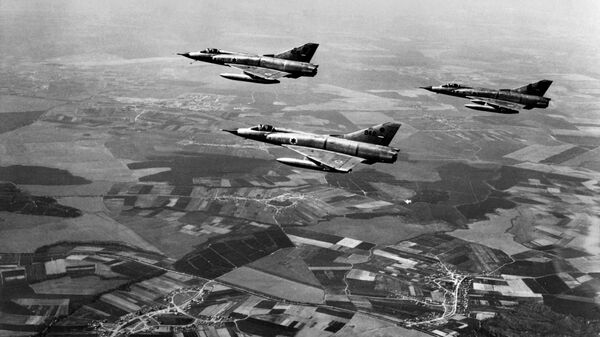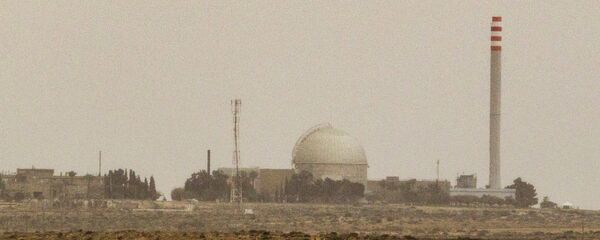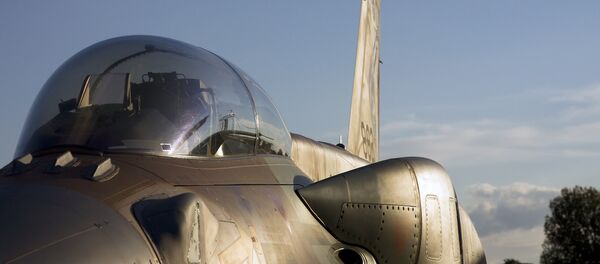Israel had amassed enough plutonium for between two and three nuclear bombs during the Six-Day War, Elie Geisler, a former radiation-safety officer tasked with guarding one of the radioactive "packages," has revealed in testimony for Israeli-American nuclear history specialist Dr Avner Cohen.
"I would stand in this small room and stare at the object with much awe, having seen photos and movies of the devastation of Hiroshima and Nagasaki. From time to time, I would discuss with the commander of the troops the procedures to move the core to an assembly point, where it would join with the remainder of the device," Geisler recalled in his testimony recently published in The Non-Proliferation Review journal.
According to Geisler's recollections, the device consisted of a wooden crate about forty cubic feet in volume containing a metallic half-sphere, with his mission being to measure radiation levels using Geiger and other counters. The officer recalled that each time he found himself alone with the device, he would "silently pray and wish that we should never employ this horrific invention of humanity."
None of the Arab countries which Israel fought during the 1967 war had access to nuclear weapons, with the situation remaining unchanged to this day.
Device Stored Outside Town South of Tel Aviv
Geisler revealed other important information, including the coordinates of the secure location where the nuclear "package," one of several, was held, saying it was stored at a facility near the town of Gedera, about 40 km south of Tel Aviv. "It was built like a fortress," the officer recalled, "with a wall surrounding the installation and a heavy metal double gate as the only way in or out. Between the gate and the building, there was a large yard, roughly the size of half a soccer field."
The facility was guarded by a platoon of about 28 police border guards in full combat gear and armed with four heavy machine guns, with a veteran officer in command reporting to Geisler.
Nuclear Close Call
On 2 June, three days before the start of the war, Col. Yitzhak Yaakov, an IDF officer in charge of Israel's arms development program, appeared at the compound to take control from Geisler.
"I smiled and said that this was impossible, and that this place was simply a training facility…He told me he must inspect the facility and that he would apply force to get in. I replied that we would apply force to prevent him from entering. He asked for the names of my superiors and I replied that I don't call them, they call me," Geisler recalled, adding that this made Yaakov "very irritated."
"Yes, they knew about Col. Yaakov and his visit, but for some reason – someone forgot or something else – had not informed me," Geisler said. A compromise solution was then reached, with the existing guards and the cadets guarding the facility on a joint basis.
Preemptive Last Resort?
Another interesting detail provided in Geisler's testimony relates to the timing of his assignment, with the former officer recalling that he was commissioned as an officer with the rank of lieutenant in late May, about a week before Israel launched its surprise airstrikes which crippled the Egyptian Air Force and kicked off the Six-Day War. According to the officer's recollections, the atmosphere in the country during the last week of May "was a mix of uncertainty and bellicosity," with the atmosphere at the secret compound being much the same.
Evidence-based historical speculation about Israeli plans to build and set off an atomic bomb if it was defeated in the Six-Day War was first laid out by scholars participating in a history conference organised by a US think tank in 2017. One of the plans, based on a series of interviews with Yaakov, was codenamed "Operation Shimshon (Sampson)" was to detonate a nuclear device on top of a mountain in the Sinai Peninsula, with the weapon providing the country with one final "trump card" if Israel's existence was endangered.



